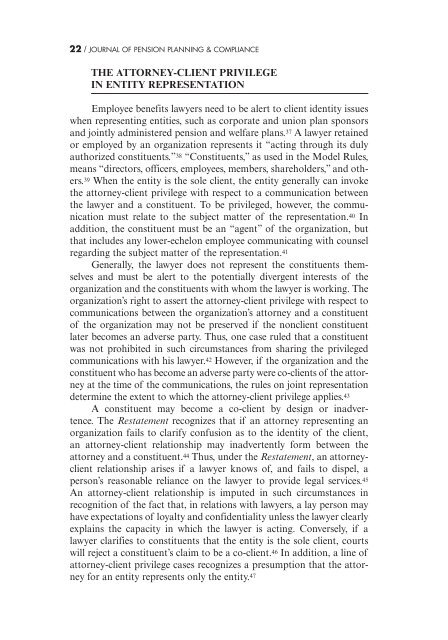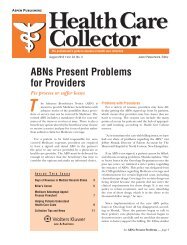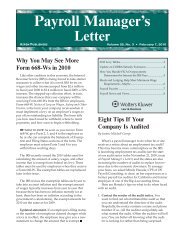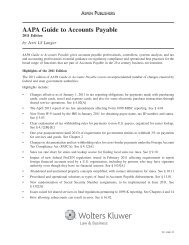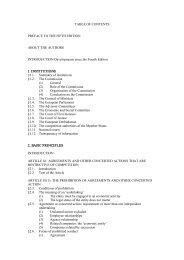journal of pension planning & compliance - Kluwer Law International
journal of pension planning & compliance - Kluwer Law International
journal of pension planning & compliance - Kluwer Law International
Create successful ePaper yourself
Turn your PDF publications into a flip-book with our unique Google optimized e-Paper software.
22 / JOURNAL OF PENSION PLANNING & COMPLIANCE<br />
THE ATTORNEY-CLIENT PRIVILEGE<br />
IN ENTITY REPRESENTATION<br />
Employee benefits lawyers need to be alert to client identity issues<br />
when representing entities, such as corporate and union plan sponsors<br />
and jointly administered <strong>pension</strong> and welfare plans. 37 A lawyer retained<br />
or employed by an organization represents it “acting through its duly<br />
authorized constituents.” 38 “Constituents,” as used in the Model Rules,<br />
means “directors, <strong>of</strong>ficers, employees, members, shareholders,” and others.<br />
39 When the entity is the sole client, the entity generally can invoke<br />
the attorney-client privilege with respect to a communication between<br />
the lawyer and a constituent. To be privileged, however, the communication<br />
must relate to the subject matter <strong>of</strong> the representation. 40 In<br />
addition, the constituent must be an “agent” <strong>of</strong> the organization, but<br />
that includes any lower-echelon employee communicating with counsel<br />
regarding the subject matter <strong>of</strong> the representation. 41<br />
Generally, the lawyer does not represent the constituents themselves<br />
and must be alert to the potentially divergent interests <strong>of</strong> the<br />
organization and the constituents with whom the lawyer is working. The<br />
organization’s right to assert the attorney-client privilege with respect to<br />
communications between the organization’s attorney and a constituent<br />
<strong>of</strong> the organization may not be preserved if the nonclient constituent<br />
later becomes an adverse party. Thus, one case ruled that a constituent<br />
was not prohibited in such circumstances from sharing the privileged<br />
communications with his lawyer. 42 However, if the organization and the<br />
constituent who has become an adverse party were co-clients <strong>of</strong> the attorney<br />
at the time <strong>of</strong> the communications, the rules on joint representation<br />
determine the extent to which the attorney-client privilege applies. 43<br />
A constituent may become a co-client by design or inadvertence.<br />
The Restatement recognizes that if an attorney representing an<br />
organization fails to clarify confusion as to the identity <strong>of</strong> the client,<br />
an attorney-client relationship may inadvertently form between the<br />
attorney and a constituent. 44 Thus, under the Restatement , an attorneyclient<br />
relationship arises if a lawyer knows <strong>of</strong>, and fails to dispel, a<br />
person’s reasonable reliance on the lawyer to provide legal services. 45<br />
An attorney-client relationship is imputed in such circumstances in<br />
recognition <strong>of</strong> the fact that, in relations with lawyers, a lay person may<br />
have expectations <strong>of</strong> loyalty and confidentiality unless the lawyer clearly<br />
explains the capacity in which the lawyer is acting. Conversely, if a<br />
lawyer clarifies to constituents that the entity is the sole client, courts<br />
will reject a constituent’s claim to be a co-client. 46 In addition, a line <strong>of</strong><br />
attorney-client privilege cases recognizes a presumption that the attorney<br />
for an entity represents only the entity. 47


